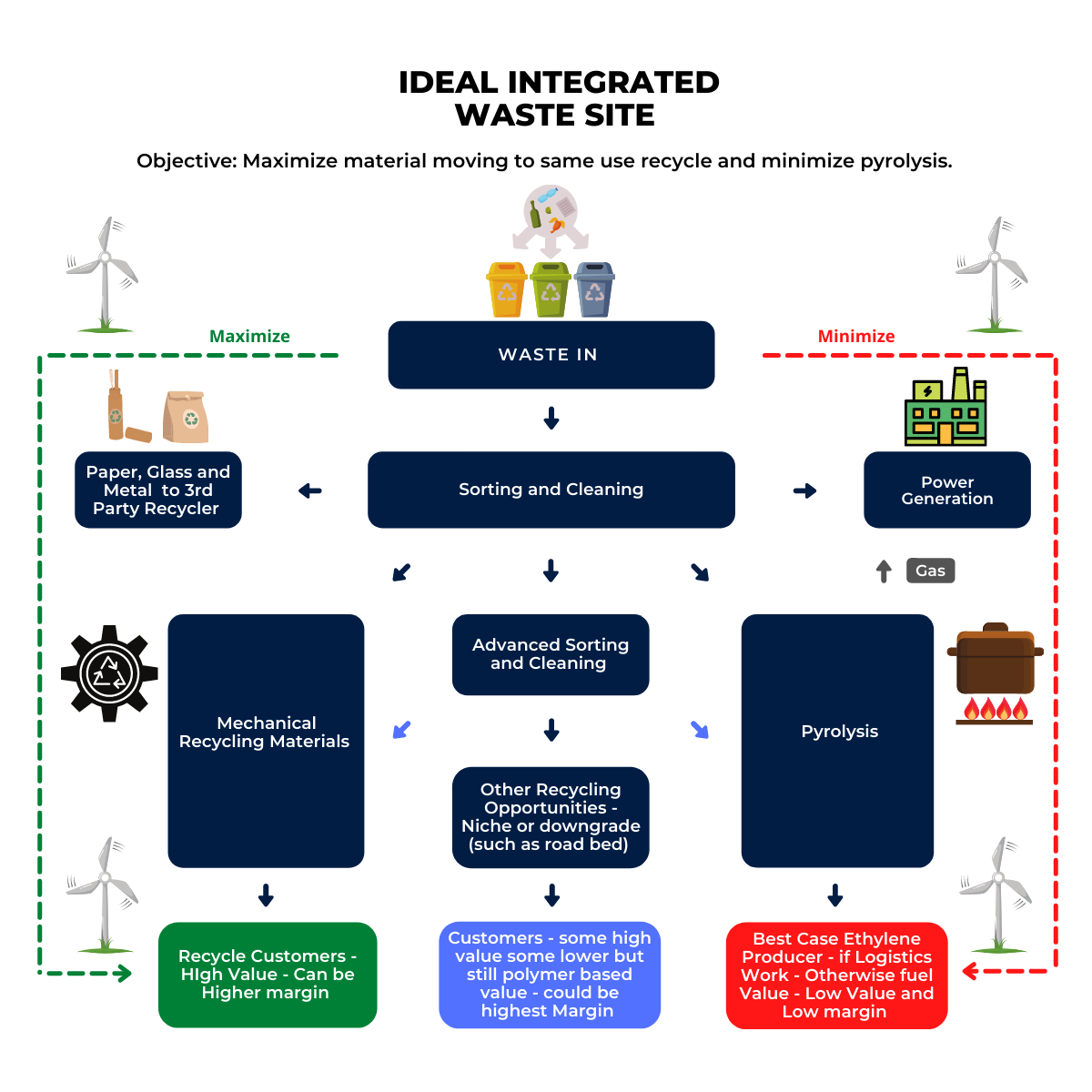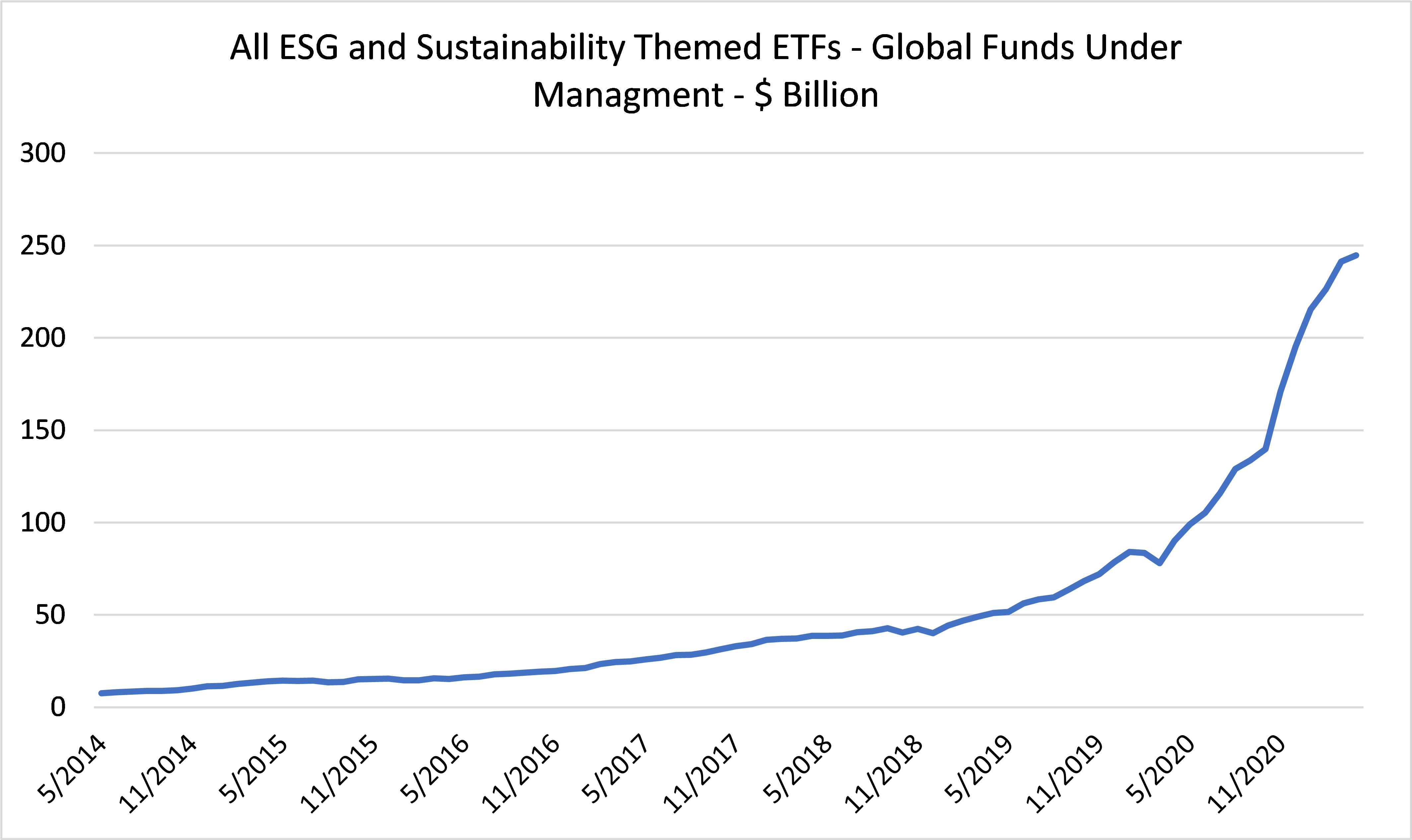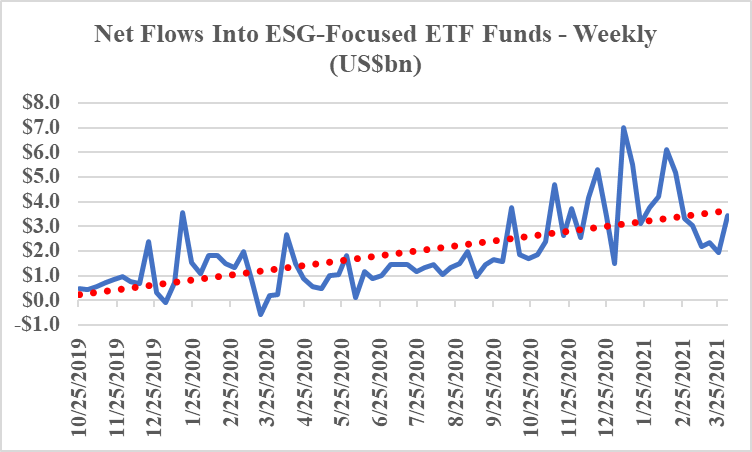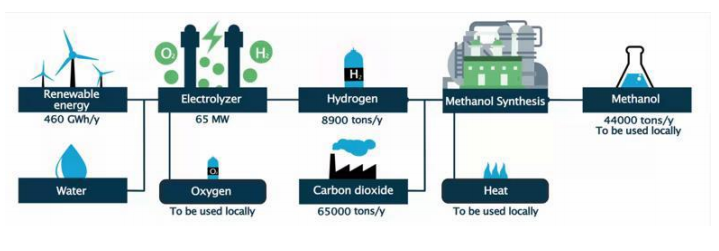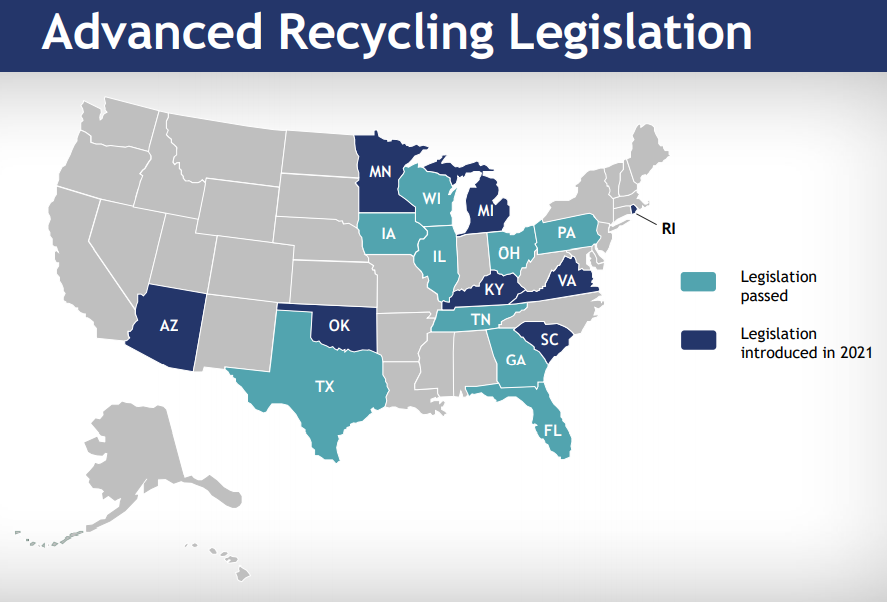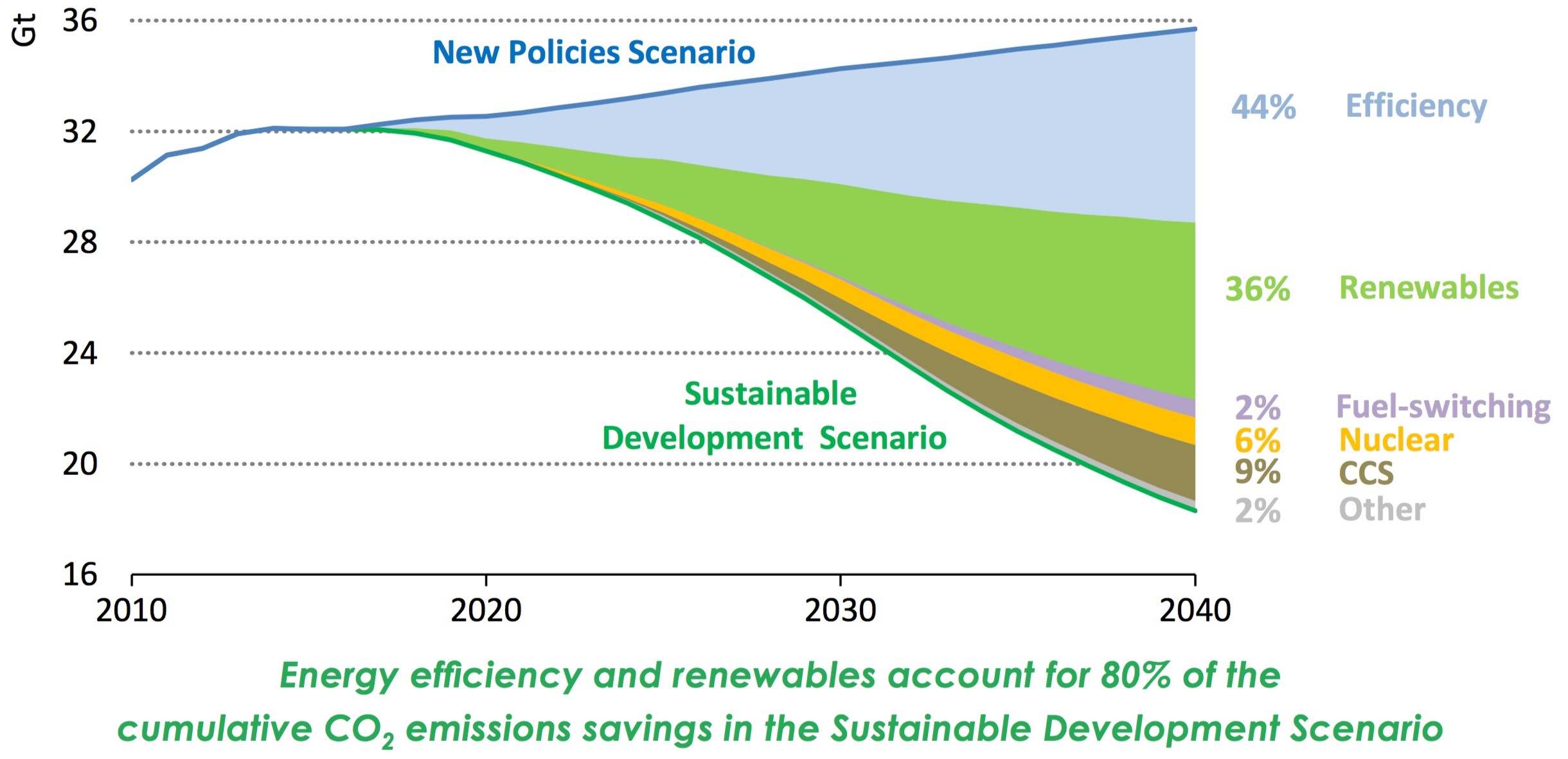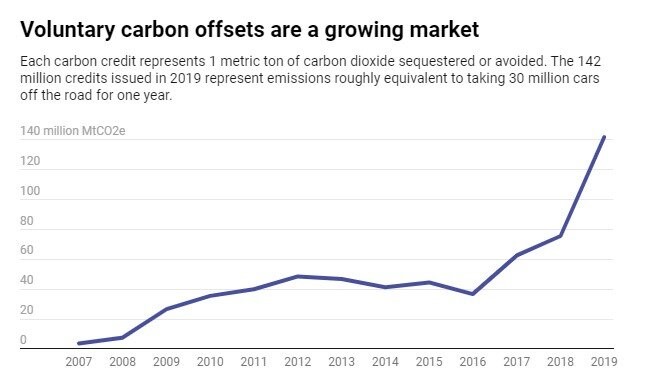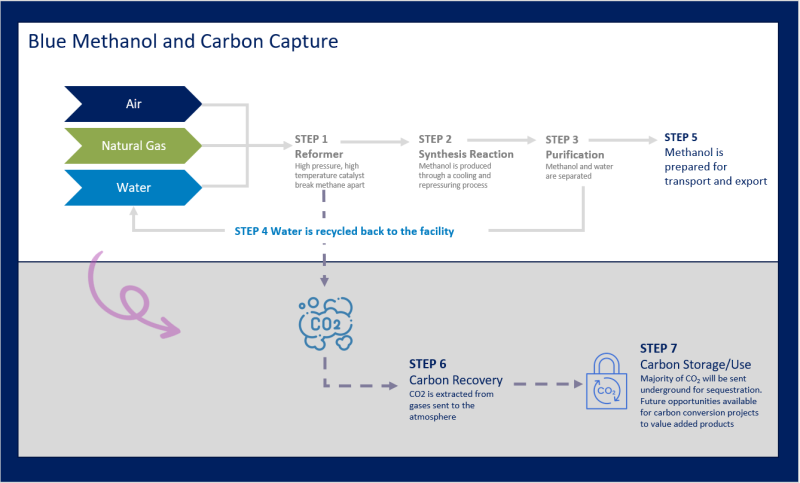Well done LyondellBasell, for one of the most sensible moves we have seen today concerning polymer labeling. The “Circulen” labeling will tell customers what they are getting and where it came from – mechanical recycling, chemical recycling, or a renewable feedstock. This should eventually lead to tiered pricing as customers, especially packagers try to solve for ambitious more sustainable packaging solutions that look very hard to achieve today.
Proper Recycle Labeling and a Boost for CCS
Apr 13, 2021 12:57:23 PM / by Graham Copley posted in ESG, Recycling, Plastics
Cracks in ESG Definitions Remain. Fixes are Needed Quickly
Apr 9, 2021 1:17:00 PM / by Graham Copley posted in ESG
Two interesting and not unrelated FT articles today that back much of what we have been writing about with respect to ESG. The first is a critical article, calling out false claims around net-zero portfolios – targeting Brookfield and more importantly, climate champion Mark Carney. Earlier in the year Mr. Carney, who apart from being head of impact investing at Brookfield is a UN climate advisor, claimed that Brookfield’s portfolio was net-zero, in that the fossil fuel investments held by the asset manager were offset by the clean energy assets also in the portfolio. A subsequent audit has shown this not to be the case and Brookfield has had to walk back the claims. The article talks about creative sustainability accounting as well as greenwashing, but also points out how “thin the ice is” when trying to argue your way to net-zero. It is also another cry for help for better and more standardized definitions concerning what is reported on a company-by-company basis and then how it is interpreted and calibrated relative either to peers or to past performance. We have noted with concern, that an absence of direction from Washington on climate action leaves the investment community as the loudest voice and most relevant “activist” for climate change behavior, but if the group is working with inaccurate data and inconsistent methodology for measuring data and taking action based on it, all sorts of abuse and mistakes are possible – resulting in some possible unintended consequences – we would encourage you to read the ESG and Climate report from last week – linked here.
Ideal Plastic Waste Facility and Carbon Neutral Carbon Black!
Apr 8, 2021 12:46:20 PM / by Graham Copley posted in ESG, Plastic Waste, Carbon Black
Given the complexity of solving both the climate and the plastics waste issues, both of central importance to the chemical industry, we are very much of the view that you should try everything. No single technology or pathway is likely to be the answer and different solutions may have different levels of attraction in different geographies. In our ESG and Climate weekly report yesterday, we spent time talking about recycling and how the business might logically develop and we talked about where blue and green methanol might fit.
ESG Inflows Make Regulatory Oversight More Critical
Apr 7, 2021 12:33:27 PM / by Graham Copley posted in ESG
We want to ignore all of the ESG posturings in the headlines and in headlines we have been highlighting for the last few weeks and focus on a core driver of the need for better and more consistent ESG disclosures and ratings – money. However, before that, the second highlighted article, from today's FT goes over our now seasoned argument that the US government needs to take action concerning ESG regulation to get the alignment needed with its climate goals.
Methanol Attempts To Go Green
Apr 6, 2021 2:23:29 PM / by Graham Copley posted in ESG, Methanol, Green Hydrogen, CO2
The methanol lobby/advocates are trying to find their place in the world of clean energy and clean chemicals and there was an interesting conference earlier today in which the case was made for methanol in a climate-friendly World. While clean methanol would have plenty of applications in lowering the carbon footprint of many chemicals, as it is a building block from which many products can be derived, the presentation focused on methanol as a fuel cell alternative to hydrogen. As the exhibit below shows, clean methanol would start with green hydrogen as a feedstock and so by definition would be more expensive to produce than green hydrogen. This would be offset by the greater density in methanol versus hydrogen, but more important by the much lower cost of infrastructure that would be needed to make methanol available – it is a liquid and could use existing infrastructure – such as fueling stations. It all still needs renewable power that we do not yet have to spare.
Sequestration, Hydrogen, and Another Critique of "Advanced Recycling"
Apr 1, 2021 12:04:55 PM / by Graham Copley posted in ESG, Hydrogen, Recycling, Sequestration
We discussed CCS as a possible enabler for US LNG above and we have noted a substantial increase in stories around CCS plans, projects, etc. since the beginning of the year. But what is missing in the US are actual physical plans – CCS ventures are being formed, like the Aemetis headline below, but they signal intent rather than action. Renewable fuel companies should be very interested in CCS as they can claim the 45Q tax credit for the CO2 sequestered and they can lower the carbon intensity of their fuel by doing so, resulting in a higher LCFS credit also (they are additive). The challenge for many is that the renewable fuel projects are not large and they are often not in locations that have had substantial seismic work done to identify pore spaces. There is also the additional problem of land rights and potential royalty payments – as there would be with an oil or gas find. Most of those who would like to capture carbon and are making statements like the one below have no subsurface experience and will likely need to turn to one of the oil service companies for help.
Disappointing Plastics Data Point & The Real Cost of Green Buses
Mar 31, 2021 1:33:04 PM / by Graham Copley posted in ESG
The Malaysian import of US waste plastic headline needs to be put into context, in part because it is only one container, but more importantly because of what is in the container. The container is only being allowed in Malaysia because it does not contain contaminated plastic. What is slightly crazy about this, is that non-contaminated plastic is precisely what should be being recycled in the US! There has to be a higher use today in the US for uncontaminated plastic than sending it offshore. This is another anecdotal data point that suggests that all of the recycling initiatives we keep reading about are small and inconsequential. If there was not a higher bid for that container of plastic within the US, we have a long way to go.
Higher Incentives Needed to Drive Carbon Capture
Mar 30, 2021 12:59:25 PM / by Graham Copley posted in ESG, Carbon Capture, Sustainability
Anyone reading our ESG and climate work will know that a very limited number of producers of CO2 in the US can make money from the 45Q credit and the linked article is also technically wrong in its definition. 45Q is a tax credit and will create no revenue for those able to apply for the credit. It will create a tax saving, but there are very few situations in which the tax credit is high enough to cover the CCS costs. It will work where CO2 streams are pure (fermentation would be a good example – but so would gas clean up for LNG), and where there is low-cost sequestration capacity local to the source. Cleaning up a dilute CO2 stream is very expensive – and incentives close to $100 per ton would be needed to get immediate movement (45Q peaks at $50 per ton in 2026). Even with a clean stream, compression costs are high but would depend on the dynamics of the pore space being used for sequestration.
It is a timely headline – even if it is largely inaccurate – because we have bills in both the Senate and the House that focus on CCS. We need to find either an incentive program that raises the interest in CCS and whether it is a higher tax credit, or an additive carbon tax, or some sort of carbon offset scheme, a further kick start is needed. There is a strong consensus building – something we have been talking about since September 2020 that you cannot achieve the Sustainable goals suggested below without substantial carbon capture and storage. The incentive landscape needs action soon, as developing sequestration sites could take years, given the need to find the right geologies.
Alignment with API! Who Would Have Guessed...
Mar 26, 2021 11:56:51 AM / by Graham Copley posted in ESG, Carbon Capture
We would like to thank the API for apparently reading all of our research! The proposals announced yesterday, while likely not aggressive enough in their targets for fossil fuel reduction, accurately, in our view, discuss all of the transitionary steps that are needed and advocate carbon capture and use or storage (CCUS) for the production of low carbon fuels as well as blue hydrogen. Implicit in their analysis is the need for further logistic investment in the US in pipelines, either to facilitate more LNG investments or to move CO2 or hydrogen. The document also outlines the basis for a carbon tax (the API calls it a carbon price) and suggests that it should be uncomplicated and broadly administered, flowing through to the end-consumer and impacting all in the carbon production chain. This is something that we agree with also, as it is the most obvious way to create behavioral change – as unpalatable as it may appear in the US, high gasoline taxes in Europe from the 1970s drove the technology to produce higher-powered smaller engines for autos and made them appealing to buyers who wanted to reduce gasoline costs. Also as a consequence, all of Europe has better public transport than the US and public transport is easier to decarbonize, given the ability to run natural gas bus fleets, electric buses, and trains, and eventually, hydrogen-powered buses, trams, and rail.
Will Being Clean Become Competitive?
Mar 25, 2021 11:46:34 AM / by Graham Copley posted in ESG, Recycling, Sustainability
In yesterday’s ESG and Climate report, we focused on the possibility of gaining a competitive edge by focusing on the most likely outcome for each climate and sustainability challenge and moving in that direction quickly, rather than waiting for regulations or incentive schemes to develop to make the financial decision more palatable. This is more important when other countries already have incentive schemes that are encouraging behavior that could create a competitive edge or where companies are acting unilaterally. There are a couple of interesting examples below:


